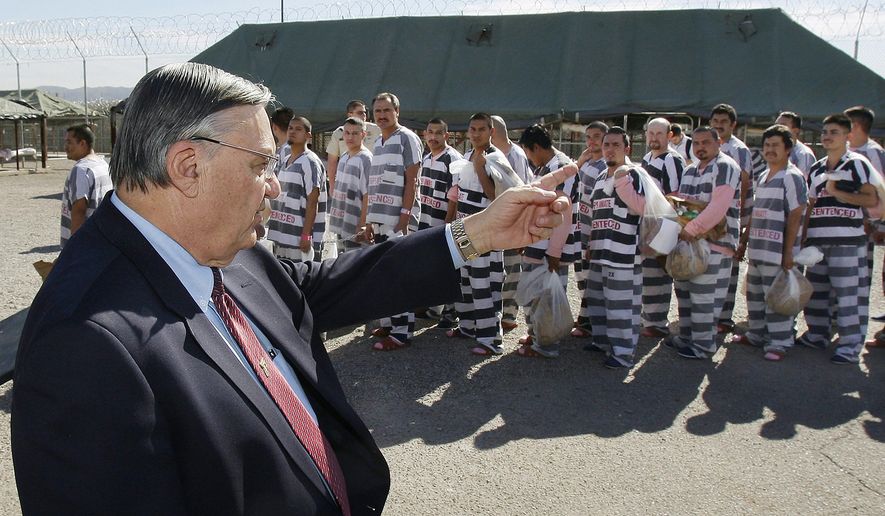PHOENIX (AP) — A judge has rejected an unusual request from critics in former Sheriff Joe Arpaio’s criminal case as part of a flurry of legal challenges since President Donald Trump pardoned the ex-lawman.
The pardon spared Arpaio a possible jail sentence and led to the dismissal of his case, but it has not erased his contempt-of-court conviction from his record. Since the Aug. 25 pardon, attorneys have argued about the practical effect of the clemency, how it should be interpreted and the limits of presidential pardon powers.
The latest legal volley came Wednesday when the judge who found Arpaio guilty rejected a long-shot request from legal advocacy groups to appoint a special prosecutor to appeal her ruling that let the pardon stand.
The groups say a special prosecutor was needed because the U.S. Justice Department isn’t pursuing an appeal and the power of the courts is at stake.
They cited an obscure court rule that allows judges to appoint special prosecutors if the Justice Department declines to prosecute contempt-of-court cases. The department won a conviction against Arpaio but says the pardon ended the case.
In ruling on the unusual request, U.S. District Judge Susan Bolton said the groups didn’t cite any court cases that suggest the Justice Department’s decision not to appeal amounts to a refusal to prosecute. Appointing a special prosecutor “would run counter to the court’s order affirming the pardon’s validity and dismissing the case with prejudice,” Bolton said.
SEE ALSO: Joe Arpaio files appeal to have conviction expunged
The conviction stemmed from Arpaio disobeying a 2011 court order that barred his office’s traffic patrols targeting immigrants. Prosecutors had accused Arpaio of prolonging the patrols for 17 months to boost his successful 2012 re-election campaign.
Arpaio, who endorsed Trump and appeared alongside him at rallies during the 2016 campaign, has acknowledged continuing the patrols but insisted it wasn’t intentional. His defiance of the court order is believed to have contributed to his loss in last year’s election after serving 24 years as metro Phoenix’s sheriff.
The legal advocacy groups that requested a special prosecutor had lost an earlier bid to get Bolton to declare the pardon invalid. They argued that letting the pardon stand would encourage government officials to flout similar court orders in the future.
Earlier this week, Arpaio hit a snag in his bid to get his conviction erased when an appeals court questioned whether it has jurisdiction over the appeal. He wants the appeals court to throw out Bolton’s blistering 14-page decision that explains the reasoning behind Arpaio’s verdict.
The move is aimed at clearing Arpaio’s name and preventing attorneys from using it in future court cases as an example of a prior bad act. Arpaio could be targeted by lawsuits from Latinos who were illegally detained while the sheriff disobeyed the order, though no such cases have been filed.
Bolton, who has refused to throw out the ruling, has said pardons don’t erase convictions or the facts of the case.
The appeals court has given Arpaio three weeks to say why his appeal should not be dismissed.
___
Follow Jacques Billeaud at twitter.com/jacquesbilleaud. His work can be found at https://www.apnews.com/search/jacques%20billeaud .




Please read our comment policy before commenting.